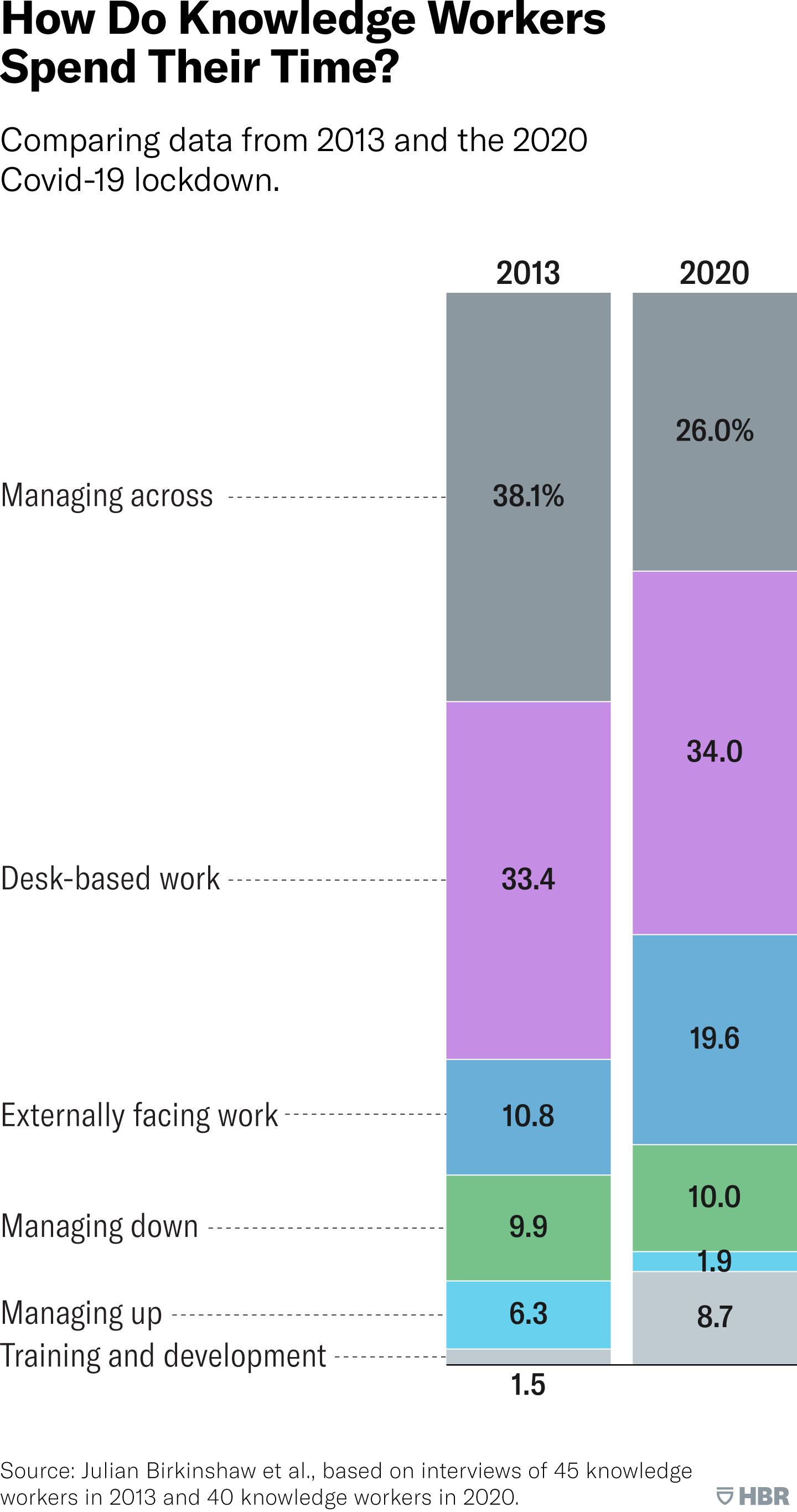A year ago, we didn’t know how long Covid-19 quarantines and work from home mandates would be in place. And…we still don’t have a super clear picture of what’s to come. In many areas, office parking lots are relatively empty; people are working from home.
The truth is, the pandemic has forced most of us to find new ways of working. And, while there are some challenges posed by the abrupt change in the way we work, recent research has shown some promising revelations:
In a Harvard Business Review study, researchers compared results from a 2013 work behavior survey to the same survey replicated in post-pandemic 2020.
Here’s what the study found:
- Lockdown helps us focus on the work that really matters. We are spending 12% less time drawn into large meetings and 9% more time interacting with customers and external partners.
- Lockdown helps us take responsibility for our own schedules. We do 50% more activities through personal choice — because we see them as important — and half as many because someone else asked us to.
- During lockdown, we view our work as more worthwhile. We rate the things we do as valuable to our employer and to ourselves. The number of tasks rated as tiresome drops from 27% to 12%, and the number we could readily offload to others drops from 41% to 27%.
They also found an interesting trend in how employees spend their time while working from home in this Covid-19 environment.
“In 2013, knowledge workers spent two-thirds of their time either “managing across” in meetings, often with many colleagues, or doing “desk-based work” on their own. Externally focused work (e.g. talking to customers), managing down (coaching and supporting subordinates) and managing up (interacting with the boss and other senior people) all got very little time, while training and personal development got almost none.”
“How has this picture changed during lockdown? There were two significant shifts: 12% less time managing across through meetings and 9% more time doing externally focused work. Desk-based work continues to take a third of our time. Other changes — a little less time managing up and a little more time on training and development — were not statistically significant.”

We still don’t know the long-term effects and productivity of this new mode of work. There will certainly be positives and negatives. Hopefully you can gain helpful insight into opportunities, challenges and concerns as you move forward into 2021.


Recent Comments